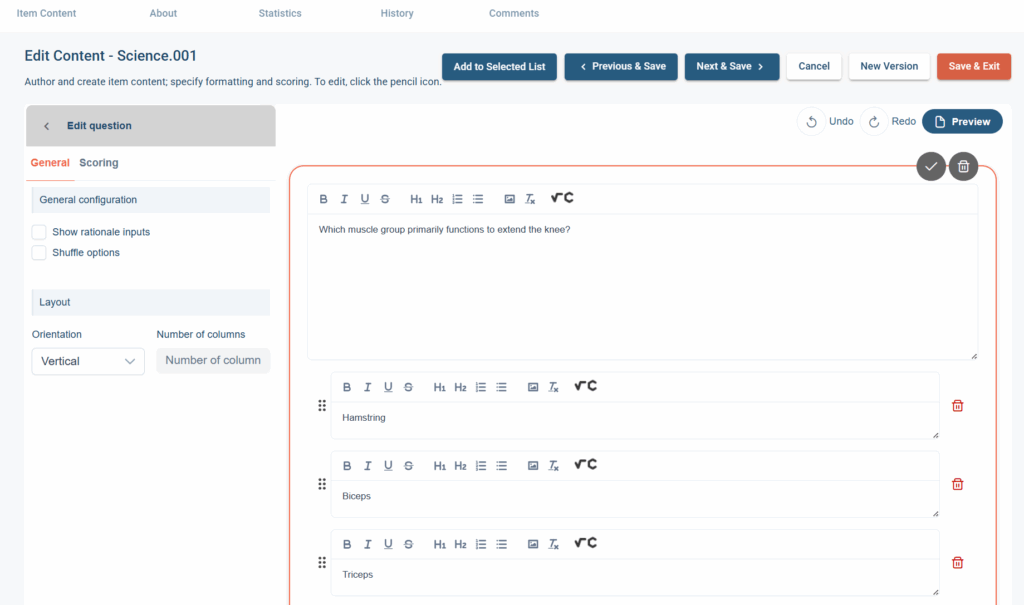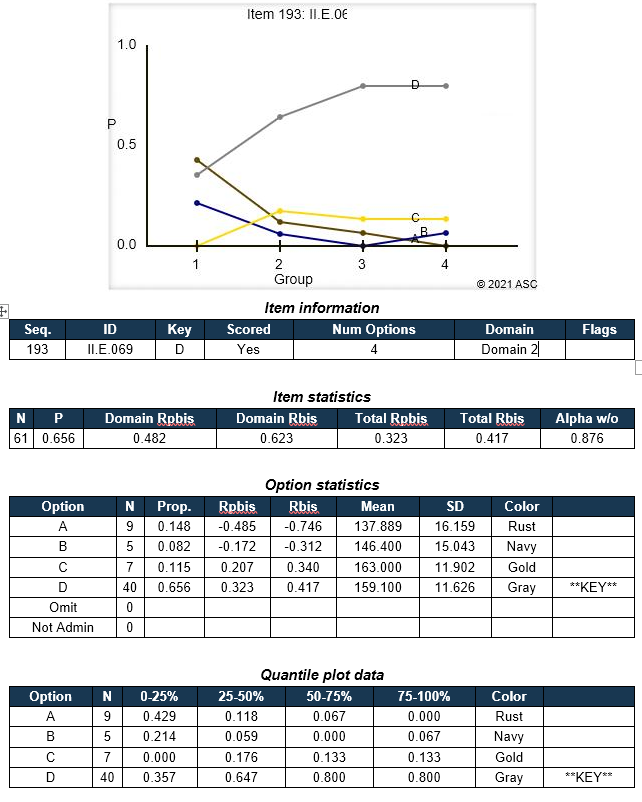A testing and certification platform provides an efficient, scalable, and secure solution for managing the development of credentialing exams, delivering them securely, and automating the management of business aspects. It helps to ensure competency of professionals, compliance to standards, and and efficient use of staff time.
In this article, we’ll explore what a testing and certification platform is, its defining features, common API integrations, and the key benefits of adopting one for your organization.
Looking for a solution for your organization? Contact us to set up a demo with our Assess.ai platform.
What Is a Testing and Certification Platform?
A testing and certification platform is a digital solution designed to create, deliver, manage, and validate tests or examinations, and subsequently provide certifications to qualifying users. These platforms are widely used in educational institutions, corporate training environments, nonprofit associations, awarding bodies, and government agencies.
The core function is simple: deliver assessments in a secure and controlled manner, then issue certifications based on performance. But modern platforms go much further—offering automated grading, customizable question types, API integrations, modern psychometrics like adaptive testing, tracking of recertification, and robust analytics.
Whether you’re a software company certifying developers on your tools, a non-profit association, or a regulatory body maintaining industry standards, a testing and certification platform can centralize and streamline the process.
Features of a Modern Testing and Certification Platform
The best testing and certification platforms share several key modules that make them reliable and scalable for different use cases:
1. Item Banking

A professional-grade platform helps you manage the entire item banking process. It supports a variety of question types, such as multiple choice, multiple response, essay, fill-in-the-blank, split-screen, drag-and-drop, and more. You can govern access to your subject matter experts with specific roles, skill levels, and tags. You can define a custom review workflow and shepherd the items through it, including gathering of Angoff ratings. Finally, you can assemble many test versions and publish to paper, online, or a third party test center company.
2. Secure Exam Delivery
To maintain integrity, online delivery modules often include features like browser lockdown, randomized questions, adaptive testing, section and test time limits, and online proctoring. These ensure that results are credible and standardized. Sometimes, the tests can be delivered on paper, at events, or in testing centers.
3. Automated Grading and Analytics

Automated scoring for most question types, with manual marking for subjective answers like essay, speeds up the scoring process. Built-in analytics let administrators establish the validity and reliability of the assessment with psychometric analysis.
4. Candidate Portal
A candidate portal serves as the front for the examinees. They create profile accounts, register for certifications, schedule exams, submit payment, see their results, and track expiration. They typically have a verification process for the public. Some platforms even support digital badges for platforms like LinkedIn or online portfolios, especially if there are microcredentials.
5. Multi-Tenant Support
Enterprise-level platforms often offer multi-tenancy—allowing separate departments or clients to manage their own assessments and user data securely within the same system.
Common API Integrations for a Testing and Certification Platform
Modern organizations rarely operate in isolation. A testing and certification platform should integrate seamlessly with other tools in your tech stack. Here are common API integrations that expand the utility and reach of the platform:
1. Learning Management Systems (LMS)
Platforms like Moodle, Canvas, Blackboard, and TalentLMS can connect via APIs to synchronize course content, user progress, and assessment results.
2. Customer Relationship Management (CRM)
CRM tools like Salesforce or HubSpot can be linked to manage leads and track the certification status of customers, partners, or employees.
3. Payment Gateways

Stripe, Square, and Authorize.net integrations allow platforms to monetize assessments or certifications for training companies or continuing education providers.
4. Accounting and Bookkeeping
The data from all the purchases – training courses, applications, exam fees, continuing education, recertification – needs to make it into your organizations accounting platform, such as QuickBooks.
5. Communication Tools
Integration with email services (like SendGrid) or collaboration tools (like Slack or Microsoft Teams) enables automated reminders, status updates, or notifications. In some cases, the certification platform will handle this.
6. Data and Reporting Tools
APIs for exporting data to BI tools (like Tableau or Power BI) allow deeper analysis of performance metrics, pass rates, and engagement trends.
Benefits of Using a Testing and Certification Platform
Investing in a modern testing and certification platform offers a wide range of benefits that go far beyond simple test delivery:
1. Scalability
Digital platforms can handle thousands of concurrent users globally, enabling organizations to scale assessments across time zones and geographies.
2. Consistency and Standardization
Automated scoring, question banks, and controlled environments ensure fair and consistent evaluation criteria for every candidate. It will also help you achieve accreditation.
3. Improved Efficiency
Automation reduces manual tasks like grading, reporting, applications/payment, and issuing certificates. This frees up administrators and educators to focus on content quality and engagement.
4. Stronger Branding and Reputation
Professionally issued certifications increase trust in your brand, validate user skills, and can be shared by users to promote your program organically. This drives the value of your certification.
5. Data-Driven Insights
Platforms offer detailed reports on candidate performance, question difficulty, drop-off rates, and more—helping you refine training programs and improve learner outcomes.
6. Regulatory Compliance
Industries with strict compliance standards (such as healthcare, finance, or IT) benefit from audit-ready reports and secure test environments that meet industry regulations.
Conclusion
A testing and certification platform is no longer a luxury—it’s a critical component of modern education, training, and compliance ecosystems. With customizable features, seamless integrations, and clear organizational benefits, these platforms empower organizations to deliver trustworthy assessments and scalable certifications efficiently.
Whether you’re an educator, training provider, or enterprise leader, leveraging the right testing and certification platform can help you improve quality, expand reach, and drive measurable results.

Nathan Thompson earned his PhD in Psychometrics from the University of Minnesota, with a focus on computerized adaptive testing. His undergraduate degree was from Luther College with a triple major of Mathematics, Psychology, and Latin. He is primarily interested in the use of AI and software automation to augment and replace the work done by psychometricians, which has provided extensive experience in software design and programming. Dr. Thompson has published over 100 journal articles and conference presentations, but his favorite remains https://scholarworks.umass.edu/pare/vol16/iss1/1/ .

